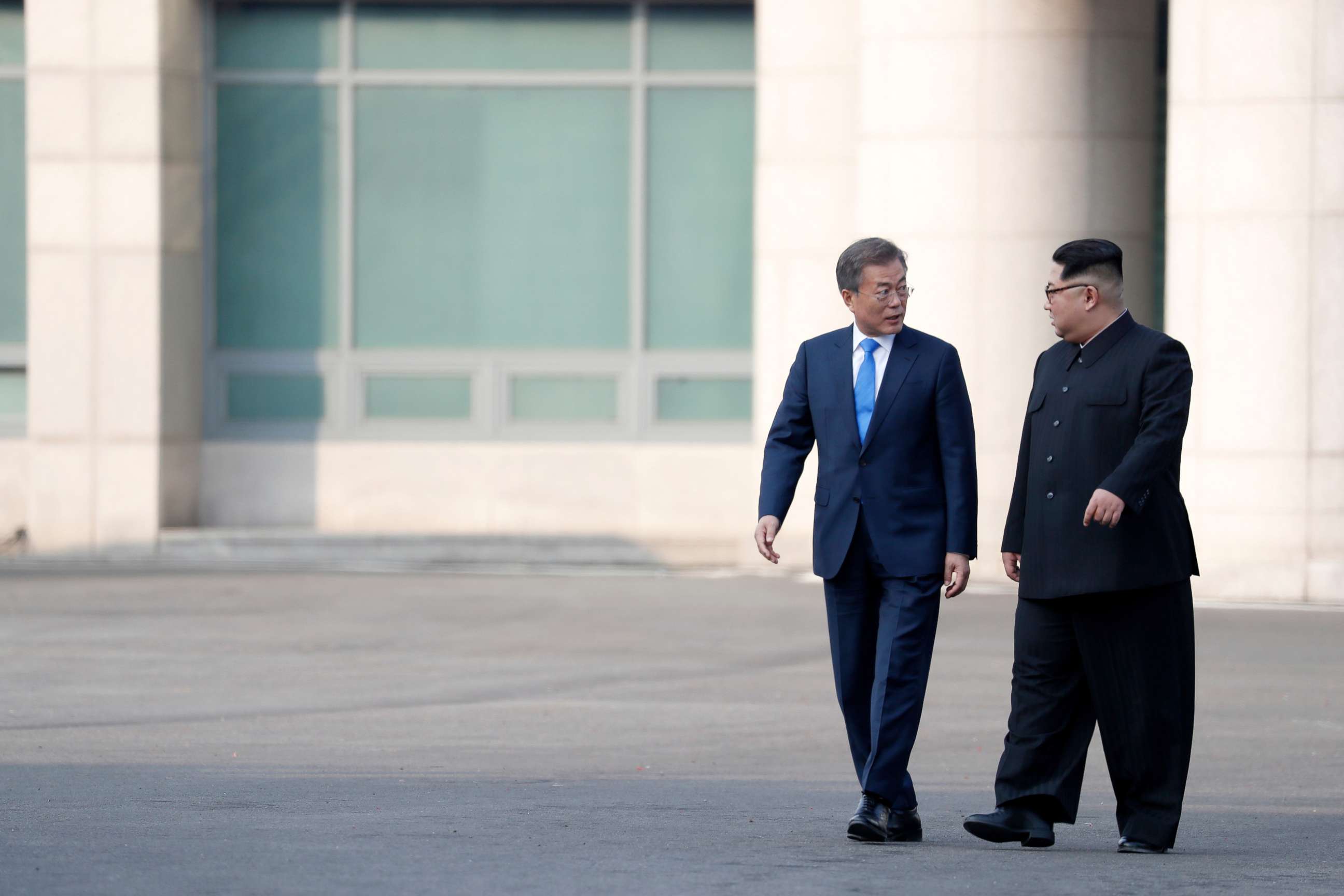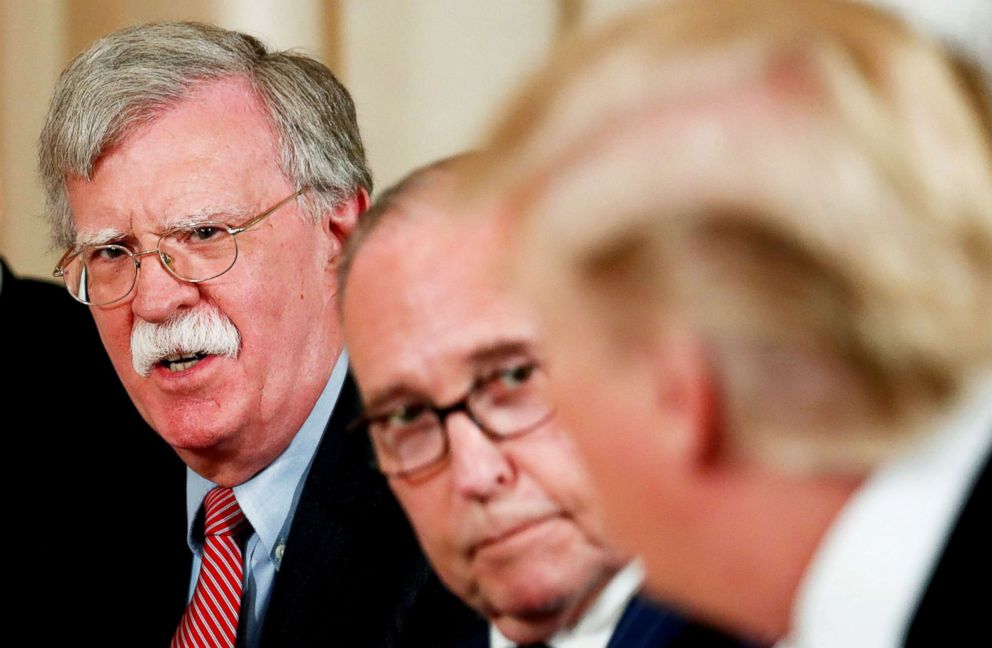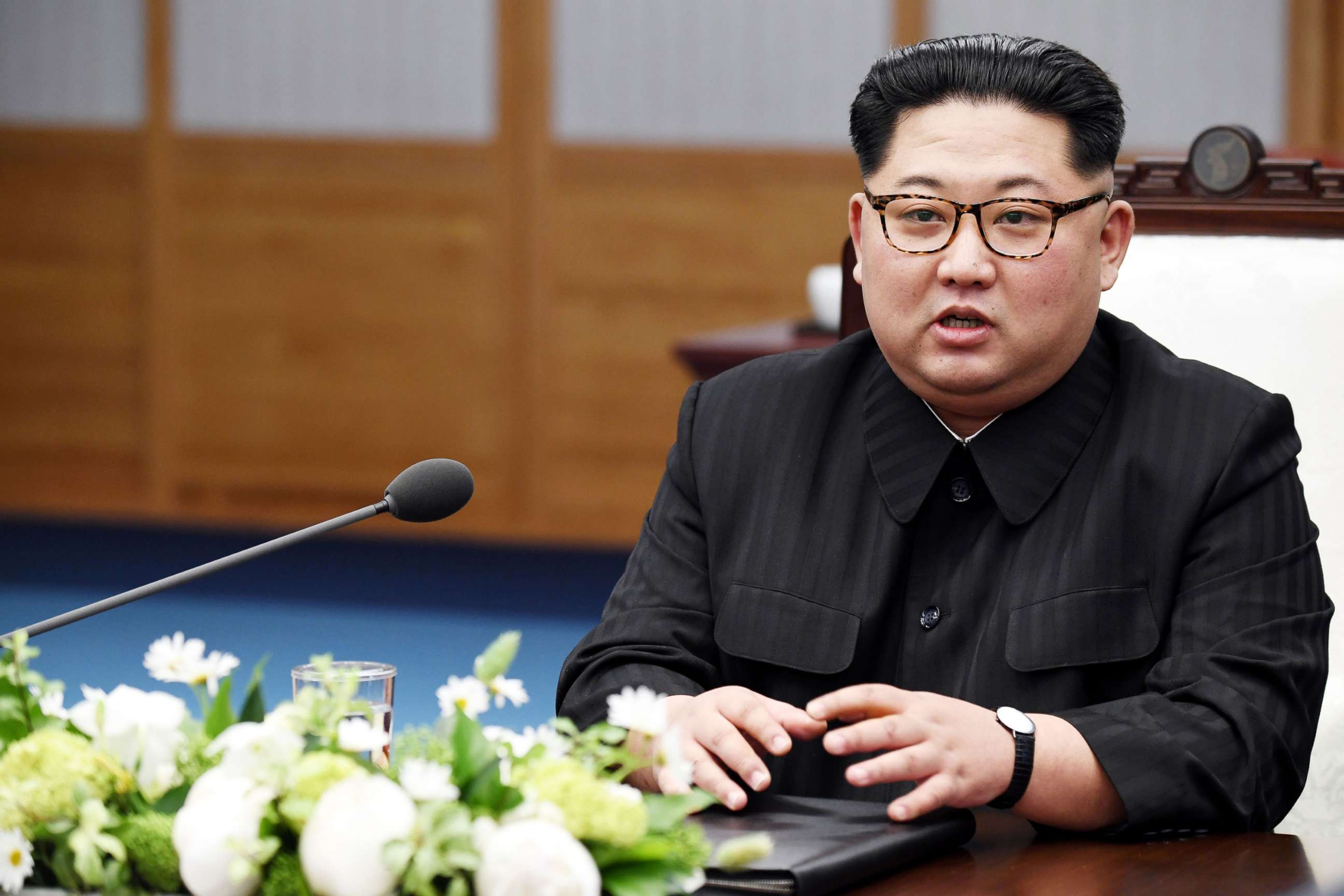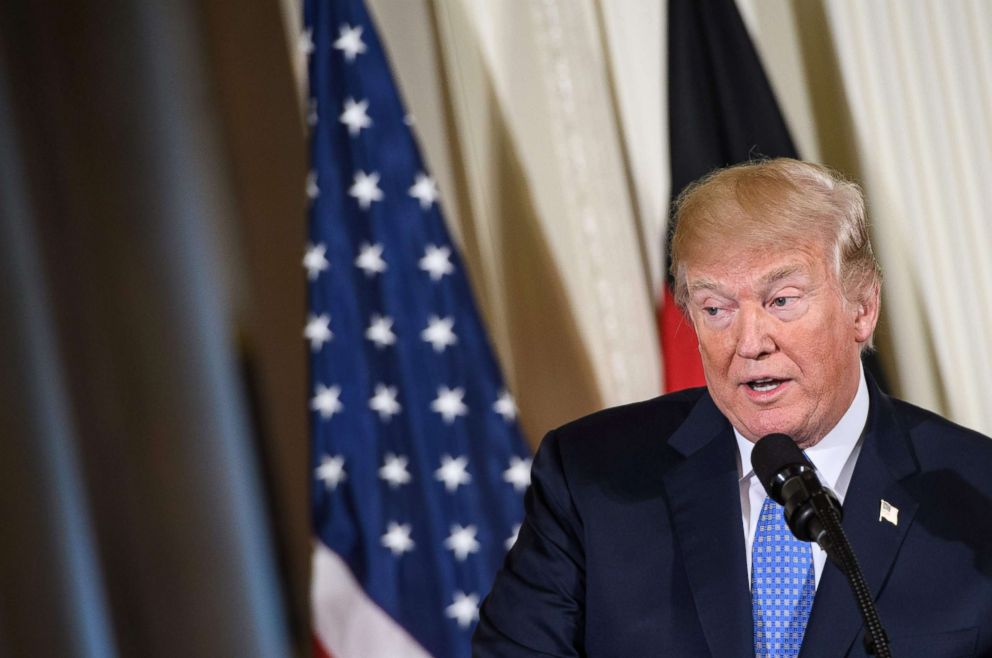North Korea blames US-South Korea military drill for postponement of talks
The North's message was "regrettable," the Unification Ministry said.
SEOUL, South Korea -- In a sudden turn, North Korea early today bombarded both the United States and South Korea with criticism linked to comments by President Donald Trump and ongoing military drills.
North Korea surprised Seoul with a message around midnight that it intends to postpone indefinitely high-level talks that were scheduled for today.
South Korea's Defense Ministry responded by saying the Max Thunder training would continue as scheduled, while the Unification Ministry said in a statement the North's message was "regrettable."

With its latest announcement, North Korea "has again shot itself in the foot, this time on the cusp of a historic meeting with the U.S. president which could have ended the Korean War and eased its diplomatic isolation,” senior research fellow Bruce Klinger of the Heritage Foundation said today at a forum at the Asian Leadership Conference in Seoul.
"North Korea returned to acting like the belligerent regime of six months ago by canceling an inter-Korean meeting planned for today and threatening to suspend its summit with President Trump," Klinger added. "Pyongyang knew of the long-planned U.S.-South Korean military exercises that it cites as justification for its abrupt actions. Indeed, Kim Jong Un had dismissed the exercises as a concern during his meeting with a senior South Korean delegation in February.
"North Korea is back to its old game of trying to raise the stakes prior to a meeting. But Kim risks undermining the goodwill he had built up through his diplomatic outreach since January."
North Korea earlier threatened to pull out of a planned summit with the United States if Trump or officials demanded a "unilateral" abandonment of its nuclear arsenal, driving Kim Jong Un's nation "into a corner."

"The U.S. is miscalculating the magnanimity and broad-minded initiatives of the DPRK as signs of weakness and trying to embellish and advertise as if these are the product of its sanctions and pressure," Kim Kye Gwan, North Korea's first vice minister for foreign affairs and former nuclear-program negotiator, said.
Kim Kye Gwan accused "high-ranking officials of the White House and the Department of State" of "provoking" them with "unbridled remarks."
He also took aim at John Bolton, Trump's national security adviser.
Bolton recently said the administration is considering a roadmap for North Korea similar to Libya.
"The implementation of the decision means getting rid of all the nuclear weapons, dismantling them, taking them to Oak Ridge, Tennessee," Bolton said Sunday on ABC News' "This Week." "It means getting rid of the uranium enrichment and plutonium reprocessing capabilities."
North Korea's statement was "very aggressive" -- too aggressive to be regarded as "just a symbolic gesture or just a hint to the U.S. saying you guys need to slow down," Sue Mi Terry, a senior fellow and Korea chair at the Center for Strategic International Studies, said.

“If this is a calculation by Kim Jong Un to gain leverage in the upcoming talks with President Trump," Terry said today at the leadership conference in Seoul. "I think he might be miscalculating pouring cold water."
Analysts who track North Korea said the nation was sensitive to the Libya comparison, especially after what happened to that country's deposed leadership.
Bolton has previously said it would be "perfectly legitimate" to carry out a preemptive strike on North Korea. His appointment in March raised concerns among those in favor of reconciliation.
The North Koreans also appear sensitive to recent comments by Secretary of State Mike Pompeo about economic opportunities available to the North if they denuclearize, according to Jung H. Pak, the SK-Korea Foundation Chair in Korea Studies and a senior fellow at the Brookings Institution.
"They are annoyed and irritated about the supposed carrot that we're throwing out there they didn’t even ask for," Pak said today at the leadership conference in Seoul. "It portrays them as a supplicant rather than equal negotiating partner that they want."
Still, this sudden turn by Pyongyang, especially after Kim Jong Un just stepped foot in South Korea, shows the North's frustration at U.S. posturing and the ongoing military drills.

The North had no choice but to put a stop to the inter-Korean high-level talks, blaming that South, which is "completely responsible" for "playing around in madness" when relations potentially had been heading toward peace, according to North Korean state news agency KCNA.
The South's Unification Ministry said in a statement, "It is regrettable that North unilaterally put off the inter-Korean high-level talks on the grounds of annual air-combat drills," adding that it would send a notice to the North today, perhaps to reschedule talks.
It was unclear exactly what message would be included.
Max Thunder is a two-week long annual joint military exercise featuring dozens of U.S. and South Korean aircraft. It was postponed from earlier this year because of the Winter Olympics in Pyeongchang, South Korea.
ABC News' Hakyung Kate Lee, Jaesang Lee and Jiweon Park contributed to this report.




